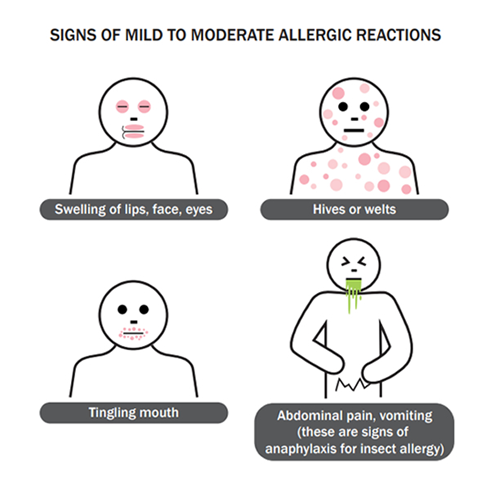A nurse is reinforcing teaching with a client about treatment of methicillin-resistant Staphylococcus aureus (MRSA). Which of the following information should the nurse include in the teaching?
Antibiotic dosages below the minimum concentration are prescribed.
Broad-spectrum antibiotics are used whenever possible.
Antibiotics are prescribed only when a viral infection is present.
Infections become resistant to high doses of antibiotics
The Correct Answer is D
A. Antibiotic dosages below the minimum concentration are prescribed:
This statement is incorrect. When treating MRSA infections, it's essential to prescribe antibiotic dosages that achieve adequate concentrations to effectively combat the resistant bacteria. Suboptimal dosages or inadequate duration of treatment can contribute to treatment failure and the development of antibiotic resistance. Therefore, the nurse should emphasize the importance of prescribing appropriate dosages of antibiotics for MRSA infections.
B. Broad-spectrum antibiotics are used whenever possible:
This statement is not accurate. While broad-spectrum antibiotics may be effective against a wide range of bacteria, they are not always the preferred choice for treating MRSA infections. MRSA is resistant to many antibiotics, including those commonly used as broad-spectrum agents. Therefore, the treatment of MRSA typically involves antibiotics that are specifically effective against this resistant strain, such as vancomycin, daptomycin, linezolid, or other agents based on susceptibility testing. Therefore, the nurse should educate the client that specific antibiotics effective against MRSA are used, rather than relying solely on broad-spectrum antibiotics.
C. Antibiotics are prescribed only when a viral infection is present:
This statement is incorrect. Antibiotics are not effective against viral infections, including those caused by viruses such as influenza or the common cold. MRSA is a bacterial infection, and antibiotics are indicated for its treatment. However, it's essential to use antibiotics judiciously and only when necessary to avoid contributing to antibiotic resistance. The nurse should educate the client that antibiotics are prescribed for bacterial infections like MRSA, but they are not appropriate for viral infections.
D. Infections become resistant to high doses of antibiotics:
This statement is accurate. Overuse or inappropriate use of antibiotics, including high doses, can contribute to the development of antibiotic resistance. Bacteria like MRSA can acquire resistance mechanisms that render antibiotics ineffective, even at high doses. Therefore, it's crucial to use antibiotics judiciously, following appropriate dosing guidelines and duration of treatment, to minimize the risk of antibiotic resistance. The nurse should include this information in the teaching to emphasize the importance of responsible antibiotic use in the management of MRSA infections.
Nursing Test Bank
Naxlex Comprehensive Predictor Exams
Related Questions
Correct Answer is B
Explanation
A. Penicillins:
Penicillins are a class of antibiotics commonly used to treat various bacterial infections. While they are generally well-tolerated and have a low incidence of adverse effects, they are not typically associated with cartilage toxicity or tendon rupture, including the Achilles tendon.
B. Fluoroquinolones:
Fluoroquinolones are broad-spectrum antibiotics known for their effectiveness against a wide range of bacteria. However, they are associated with several significant adverse effects, including cartilage toxicity and tendon rupture. These adverse effects, particularly tendon rupture, are most commonly observed in weight-bearing tendons such as the Achilles tendon. Fluoroquinolones should be used cautiously, especially in populations at higher risk for tendon injuries.
C. Aminoglycosides:
Aminoglycosides are another class of antibiotics used to treat severe bacterial infections. While they have their own set of potential adverse effects, such as nephrotoxicity and ototoxicity, they are not associated with cartilage toxicity or tendon rupture.
D. Sulfonamides:
Sulfonamides are antibiotics that inhibit bacterial growth by interfering with the synthesis of folate. While they can cause various adverse effects, including skin reactions and hematologic abnormalities, they are not associated with cartilage toxicity or tendon rupture.
Correct Answer is B
Explanation
A. Headaches:
Headaches are a common symptom that can occur for various reasons, including stress, tension, dehydration, or as a side effect of medications. While headaches can sometimes occur as a side effect of certain drugs, they are not specific indicators of a drug allergy. Allergic reactions to medications typically involve other symptoms such as rash, hives, itching, swelling, or respiratory symptoms.
B. Hives or shortness of breath:
Hives (urticaria) are raised, red, itchy welts on the skin that can occur as an allergic reaction to medications. They are a common manifestation of drug allergies. Shortness of breath (dyspnea) can occur as part of a severe allergic reaction known as anaphylaxis. Anaphylaxis is a life-threatening allergic reaction characterized by a rapid onset of symptoms, including difficulty breathing, swelling of the throat or tongue, rapid heart rate, and low blood pressure. Both hives and shortness of breath are significant signs of a potential drug allergy and require immediate attention.
C. Diarrhea:
Diarrhea can occur as a side effect of medications, including antibiotics. However, it is not typically a specific indicator of a drug allergy. Diarrhea is more commonly associated with gastrointestinal disturbances or as a reaction to changes in gut flora due to antibiotic use.
D. Nausea:
Nausea is a common side effect of many medications, including antibiotics. While it can be bothersome, nausea alone is not a specific indicator of a drug allergy. Allergic reactions to medications typically involve other symptoms such as rash, hives, itching, swelling, or respiratory symptoms.

Whether you are a student looking to ace your exams or a practicing nurse seeking to enhance your expertise , our nursing education contents will empower you with the confidence and competence to make a difference in the lives of patients and become a respected leader in the healthcare field.
Visit Naxlex, invest in your future and unlock endless possibilities with our unparalleled nursing education contents today
Report Wrong Answer on the Current Question
Do you disagree with the answer? If yes, what is your expected answer? Explain.
Kindly be descriptive with the issue you are facing.
